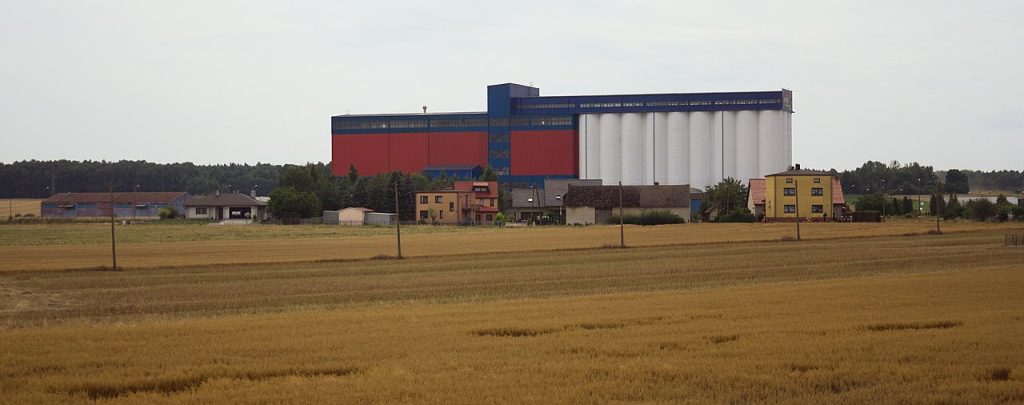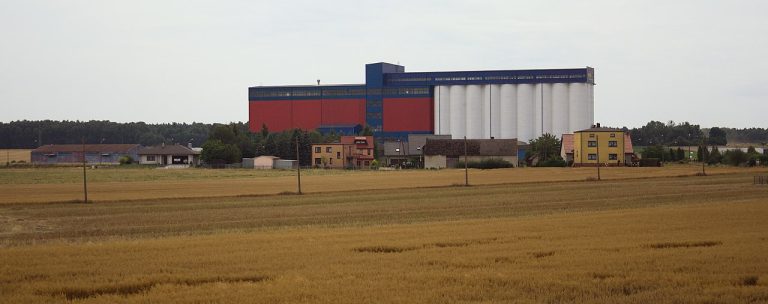The closer we get to the European Parliament elections in June 2024, the tougher politicians will compete to win votes. There is one constituency that conservative politicians are courting in particular: farmers.
When the centre-right European People's Party, the largest group in the European Parliament, tried – and narrowly failed – to repeal the Nature Restoration Act, it cited farmers and food security as reasons to oppose it. In her State of the Union address in September, European Commission President Ursula von der Leyen – herself a member of the European People's Party – was keen to show her appreciation for farmers but avoided mentioning the “farm to fork” strategy, the Commission's main effort. To make agriculture more fair and sustainable. The EPP presents itself as the party of farmers and appears ready to challenge and contest any attempts to rein in the harmful effects of agriculture on ecosystems.
Of the more than 400 million eligible voters in the EU, only about nine million, or about 2%, work in agriculture. But politicians consider their vote decisive. This is partly because farmers speak so loudly, but also because of the positive image across Europe of farmers as guardians of rural traditions and cultural heritage, and providers of our daily sustenance. This means that a much wider portion of the electorate identifies with and sympathizes with them, making them a powerful constituency.
There is no doubt that farmers need support. Their presence is crucial to Europe's long-term food security and, ultimately, prosperity. But unfortunately, European agriculture is in dire straits. Although agriculture represents the largest item in the EU budget, spending tens of billions of public funds annually, the bloc has lost three million farmers over the past decade. This means that 800 farmers leave the profession every day. But what is even more worrying is that they have not been replaced: the average age of a European farmer is now 57 years. These statistics date back to the decade from 2010 to 2020, before a war on Europe's doorstep between two agricultural superpowers put further pressure on food producers. , who have since been suffering from the rapid rise in the prices of inputs such as feed, fertilizers and pesticides.

Feed production plant in Kochanowice, Poland. Image: Chained. Source: Wikimedia Commons
Over the past two years, European farmers have been hard hit by numerous extreme weather events, from drought and heatwaves to floods and forest fires, which have damaged farms and decimated crops. To make matters worse, scientists have warned unequivocally that extreme weather is likely to worsen and will threaten food production. Scientists warn that it is essential that agriculture not only mitigates its contribution to climate change, but also adapts and becomes more resilient to these disasters, as well as more subtle shifts in cropping and rainfall patterns. However, agricultural lobbyists and politicians who claim to care about the continued viability of European agriculture seem determined to resist any reforms or changes to the status quo.
Misleading claims
This can partly be explained by the dominance of Cuba Cojica, the oldest, largest and most powerful agricultural lobby in Europe. The organization was founded in 1959 with the beginning of the European Union's Common Agricultural Policy, which was itself founded on the post-war principle that Europe should never go hungry again. They began as two separate movements representing agriculture (Copa) and cooperatives (Cogeca), then merged in the early 1960s. Its members include many of the EU's main national agricultural unions, and over the years Cuba-Cogeca has declared itself the voice of European farmers and agricultural cooperatives in Brussels.
Cuba-Cogeca claims to represent more than 22 million farmers and their families, which – according to European Commission data – means the entire agricultural sector in Europe. However, this claim seems more aspirational than realistic, as I and other journalists revealed in our months-long investigation Lighthouse Reports, a non-profit investigative news outlet, with media partners in Brussels, Romania, Poland, Spain, the Netherlands and Denmark. Interviews with nearly 120 farmers, insiders, politicians, academics and activists, as well as a survey of 50 Copa-Cogeca affiliates, cast serious doubt on the lobby's claims of membership and legitimacy in the agricultural community.
In Romania, which has the largest number of agricultural holdings in Europe at around 2.9 million, a total of 3,500 farmers are represented by an alliance of four Copa-Cogeca member unions, according to their own press releases and interviews. In Poland, about 1.3 million farmers are nominally members of Copa-Cogeca affiliate KRIR, which receives large sums of taxpayer money but does not keep track of who it represents. “Due to a lack of records, the agricultural chambers had no knowledge of all the members whose interests they were supposed to represent,” the country’s Financial Supervision Bureau concluded in 2021.
In Denmark, the only member of Copa-Cogeca is the Danish Council for Food and Agriculture (L&F in Danish). Its annual reports in 2016 and 2021 showed an increase in the number of its members by 5,000 farmers, a strange development that seems to contradict European and national statistics. The union refused to provide a full explanation for the increase in the number of its members, but its latest annual report omitted this number entirely. Spain probably has the most comprehensive data set among the countries investigated. Even there, the three Cuba-Cogeca member agricultural unions represent only 40 percent of the country's farmers.
Power without representation
The long-standing perception of Cuba-Cogeca as the arbiter of what European farmers need and want is based on unreliable, unproven and non-transparent data. In addition, small farmers do not feel represented. “Decisions pass through major countries, major farmers, major unions… [There’s] “There is no equality,” said Arunas Svetoius, president of the Lithuanian FA and Cuban member LR Suhr.
Other current and former members and insiders also said that Copa-Cogeca mostly represents the interests of farmers and large industrial cooperatives and not the small and medium-sized farmers who make up the bulk of European agriculture. According to Eurostat, of the 9.1 million agricultural holdings in the EU in 2020, 63.8 percent were less than five hectares, and at least 75 percent were less than 10 hectares. Despite this, Cuba-Cogeca still enjoys a close relationship with the three EU institutions that are at the heart of agricultural policy-making: the Commission, the Parliament and the Council. In a 2019 article on agricultural subsidies, L The New York Times European leaders have historically treated Cuba-Cogeca “not as mere recipients of government funds, but as partners in policy making,” he said.
Copa-Cogeca is the only group invited to meet and speak with the President of the Council before every EU Agriculture Ministers' meeting. Copa-Cogeca also had the largest number of seats in the civil dialogue groups that assist and advise the Committee. The structure of these groups has recently been reformed, but sources say Koba-Kogica still dominates discussions. Commission insiders also spoke of a “mutual understanding” between the AGRI Directorate General, the Commission branch responsible for agricultural policy, and Copa-Cogeca.
In emails to members of the European Parliament, Lighthouse Reports The lobby group has been shown to make detailed suggestions on how to vote on specific legislation and what type of amendments should be made. One member of the European Parliament even felt that Cuba Cojica's correspondence was a veiled threat.
This friendly, closed relationship between the legislative and executive powers and interest groups in Brussels, which control agricultural policy-making, has been dubbed the “Iron Triangle.” Power without representation can lead to skewed policies that favor the few who roam the corridors of power in Brussels, rather than the millions of farmers toiling in the fields.
Last year, Cuba-Cogeca used its position to oppose environmental reforms proposed by the Green Deal and the Farm-to-Fork strategy, including successfully sabotaging the Pesticide Use Reduction Act, and defeating efforts to require large-scale agricultural operations to reduce harmful emissions. And trying to block a law that would restore European ecosystems. Its pressure also delayed the crop cycle and fallow land requirements under the Common Agricultural Policy. In addition, he is against linking agricultural subsidies to environmental outcomes. Crucially, it does not want to cap the maximum amount a farm can receive under the Common Agricultural Policy, which has so far benefited large landowners at the expense of small and medium farmers.
Disadvantaged farmers
This disenfranchises the kind of committed young farmers that Europe so desperately needs, perpetuating the vicious cycle of irreparably more farmers abandoning farming. Like Thijs Paulens, a former activist and social worker who now grows organic vegetables and local varieties of wheat and barley in Flanders. “We don't see it at all.” “We don’t count because we don’t have the money,” he told me over a Zoom call during an afternoon break. His anger was evident at policies at regional, national and EU levels – which he said were largely focused on large-scale, intensive industrial agriculture.
Like Katja Temnick, the former basketball star turned herbalist and biodynamic farmer, who warned parliamentarians, bureaucrats, lobbyists and farmers gathered during the annual EU conference on the future of agriculture in Brussels that the increasing focus on technology-based food production is a mistake. Decision makers are “completely disconnected from reality or from what the people who actually live and work on the ground need and feel,” Temnick said.
Like David Peacock, founder of Erdhof Seewalde, a 111-hectare mixed livestock farm in northern Germany, who feels disconnected from big farming unions like Copa-Cogeca because “the way they farm and what they do is destroying the planet.” . “I know it is possible to work differently,” he adds. “So I am completely critical of what they are doing and the structures behind the whole thing.”
Like Jean-Mathieu Thevenot and his friend, the young engineers who set up a farm in the French Basque Country as a “political choice” to argue that “industrial agriculture is a big part of the problem for most of the environmental issues we face.” We need to change the way we farm. Thevenot adds: “Most of the young farmers I know and work with are completely disconnected and at odds with the vision of Cuba-Cogeca, which is very powerful in the EU but advocates for the status quo and agricultural industries.”
Like Bogdan Suleiman, a former Romanian utility worker who turned to farming to support his parents and charts a very different course from his older neighbors who advised him to use as much fertilizer and pesticides as possible. He is trying to recreate a sustainable ecosystem that does not require chemicals to control pests or boost productivity. “We need a different mindset,” he says.
Although not all farmers are keen to change their practices, many are – especially if it allows them to make a reasonable profit. Research shows that this is a realistic perspective. If the farm-to-fork program is carefully implemented, many farmers will benefit and only some will lose. But this requires a bold set of measures and courageous and forward-thinking representatives of European farmers.
This is why Cuba-Cogeca's lack of representation and the EPP's positioning itself as a “farmers' party” is so worrying. If these two largest and most powerful groups in Brussels continue to resist any reforms to how food is produced, consumed and disposed of, they will harm farmers who want change and consumers who need healthy, affordable food that meets their needs. Don't destroy the planet. Ultimately, this would undermine European agriculture and the continent's ability to feed its people.

